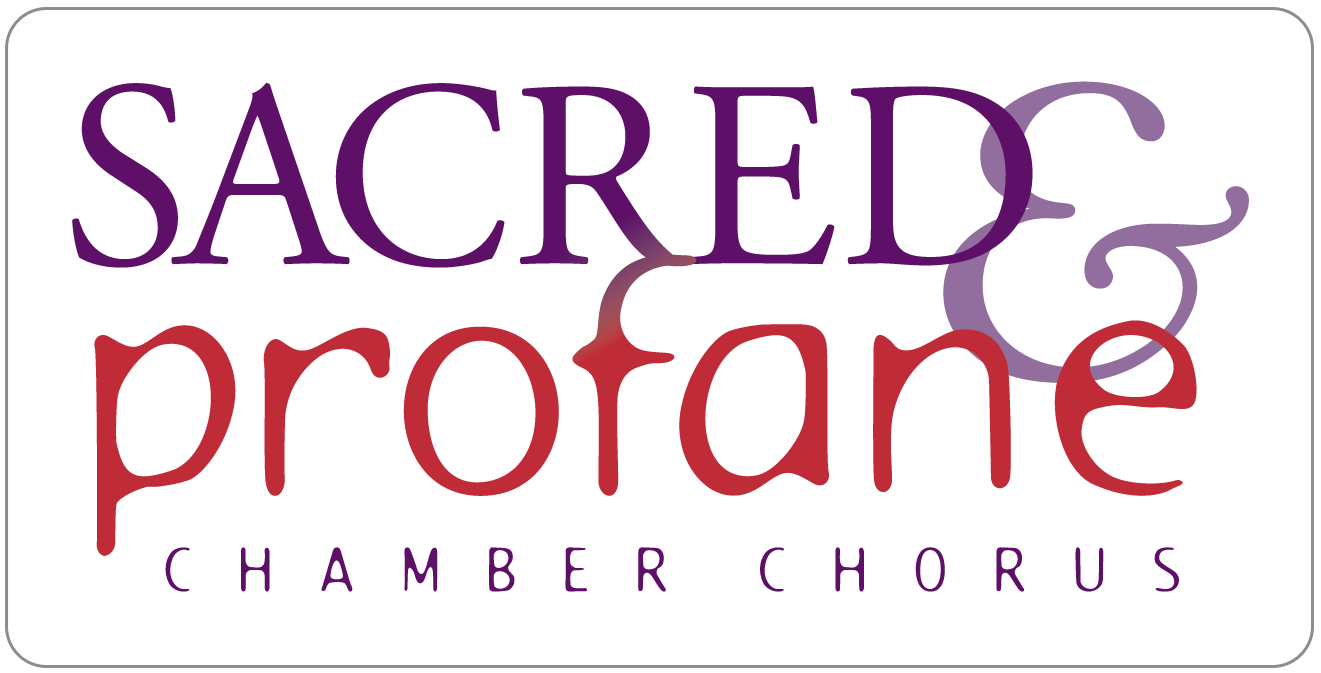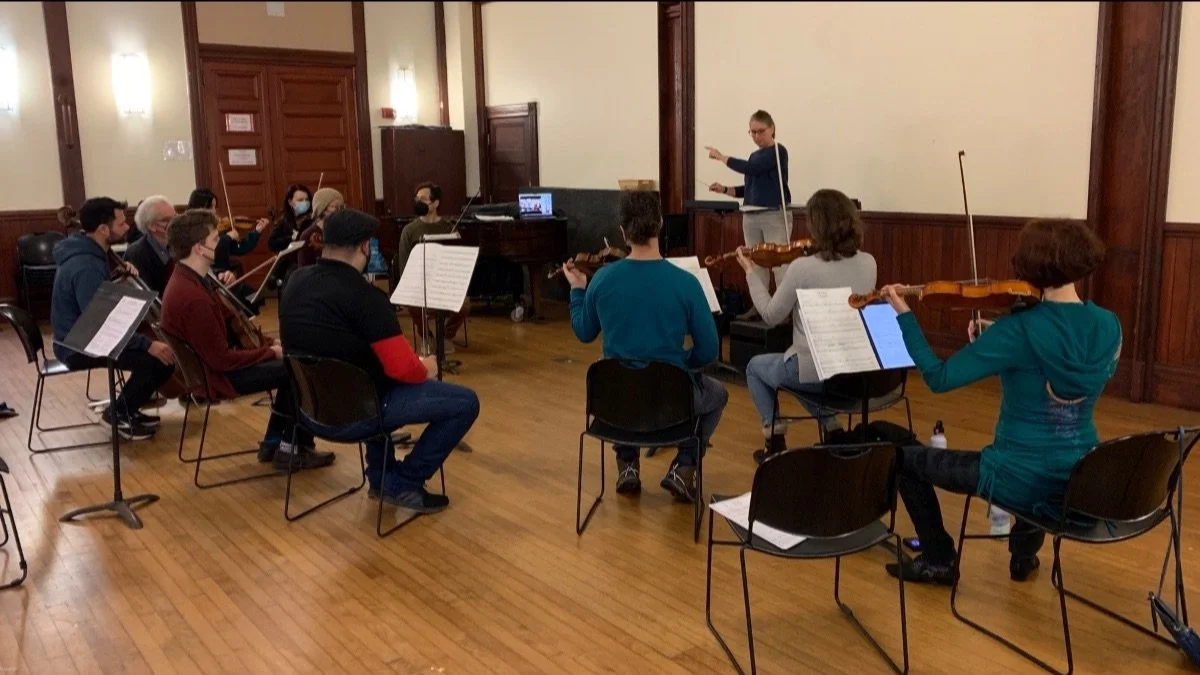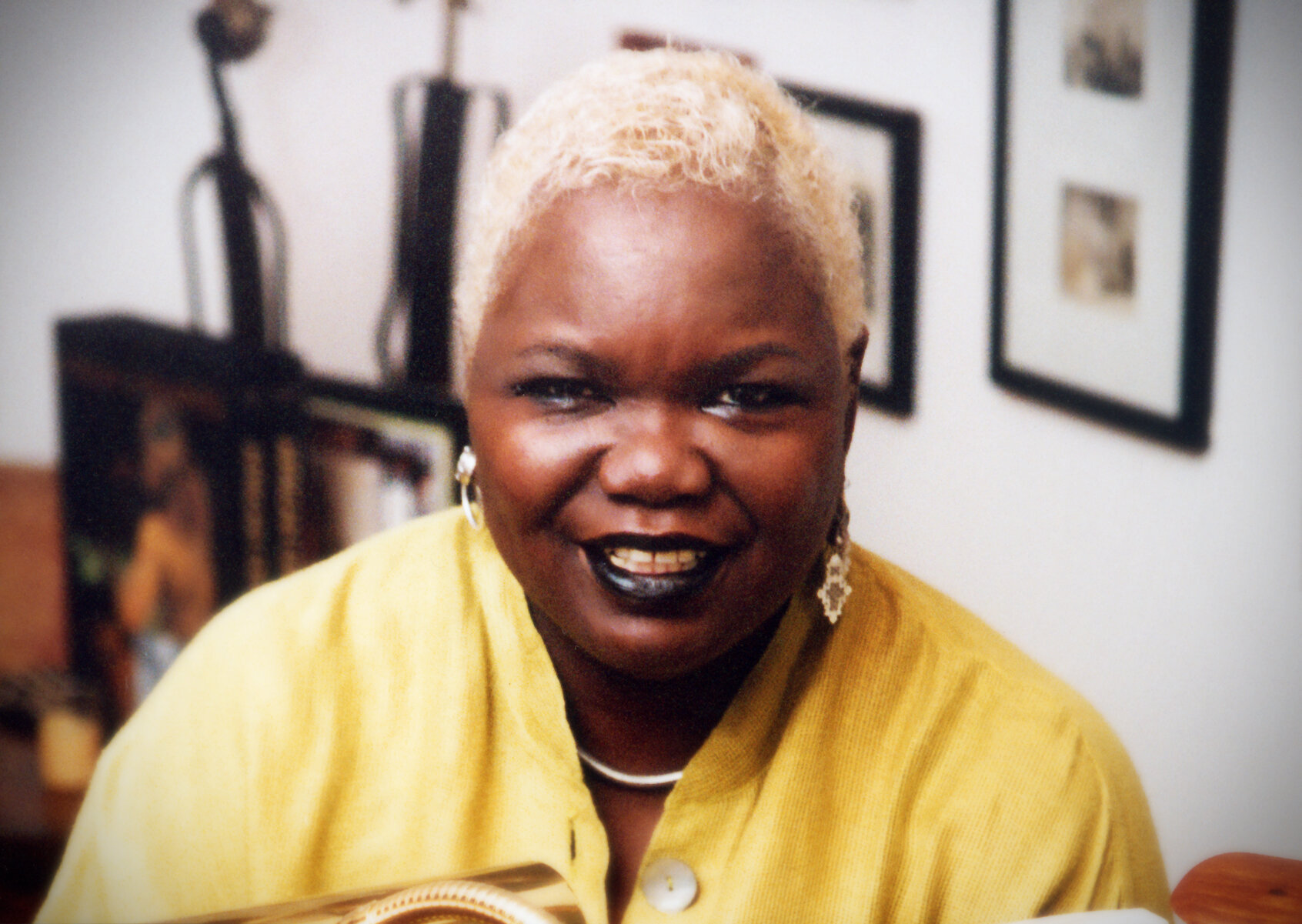from the DIRECTOR'S DESK
Dear Friend of Sacred and Profane,
As we observe Jewish American Heritage Month this May, I have the opportunity to reflect on my own multiple identities as a Jewish, and Swedish, American woman. Things were never very clearly delineated in my household – my Jewish American father was an expert Swedish folk dancer and spoke the language fluently and my (not Jewish) Swedish mother would always ask if he was Jewish when I told her I had started dating someone new. The way those two cultures both intersect and conflict has largely defined me. The Jewish temperament for debate seems to have won rather than the Swedish reticence for conflict. The Swedish love of nature has to compromise with the Jewish love of urban art and culture. Both have fed an interest in politics and dreams of a more just system that cultivates a healthy and equitable society. That complexity can be found within Jewish culture itself, of course. The upcoming Sacred and Profane has allowed me the opportunity to dig into my Jewish identity in a way I rarely do in my choral expression, and I have been personally deeply affected by the richness of this tradition and the music we’re singing this weekend, as well as the artistry of the S&P singers. Our concert includes newly composed music written with a complex harmonic palette, heart-warming accessible music, arrangements of both Ladino and Yiddish folk songs, and more.
Sacred and Profane has been singing the music of Karen Siegel for the past few years, when the Covid lockdown allowed us to explore pieces that she wrote expressly for singing online. We first sang her Ana el na in the version for online singing in March 2020 and we return to that beautiful chant for healing now. It’s been wonderful to sing it together in the same room and to experience the interlocking melodies of the canon. Karen is one of the composers that we featured in our “Choral Connections” interview series in our 2020-21 season (which you can see on our YouTube channel), and I’ve enjoyed getting to know her as a committed choral composer, singer, conductor, and fellow Jewish woman.
We first sang the young virtuosic Swedish Jewish composer Jacob Mühlrad’s music this past December and I’m thrilled to return to his music in this concert with his Anim zemirot. When I met Jacob a few years ago when he was in San Francisco, he gave me several scores and specifically suggested that I consider his Anim zemirot for Sacred and Profane. This work is complex and organic, exciting and warming, intellectual and spiritual, much like the Jewish tradition itself. Jacob is a champion of Swedish choral complexity, and I am thrilled that he is continuing to build on that remarkable canon of work with such skill and beauty.
Stacy Garrop has become increasingly familiar to Bay Area audiences, as she has recently had high profile performances of her works presented by the San Francisco contemporary choral ensemble Volti, the San Francisco Symphony, and others. Stacy writes compelling, challenging music that is always deeply felt. Her Lo Yisa Goy is a setting of Micah 4:3-4, well-known in its translation “Nation shall not lift sword against nation. Neither shall they learn war anymore” – a sentiment that certainly speaks to our current global experience. She weaves together three traditional melodies to create a beautiful work that twists and turns, taking you places you don’t expect.
When I was building this concert, one of our sopranos, Mishaela DeVries (who we are now missing terribly while she takes up residence in her home town of Portland, OR) introduced me to the Norwegian composer Kim André Arnsen’s Even When He is Silent, a setting of a text that professes a belief in the goodness of humankind. The words were scratched onto a wall in Cologne during World War II by a Jewish person in hiding. I often find myself on the edge of tears when we rehearse this piece, and even just when speaking about it. The range of behaviour toward others that we human beings is forever shocking – from torture to risking one’s life to bring food to someone in hiding. Arnesen is the only composer on our program who is not Jewish, but I felt it was important to include this moving work.
While there are many Jewish identities, the two most populous groups are the Ashkenazi, who come primarily from Western Europe and Eastern Europe, and the Sephardim, who come mostly from Southern Europe, North Africa, and the Middle East. The Ashkenazi’s traditional language is Yiddish, which shares elements with German and Polish. The Sephardic language, Ladino, is a Romance language and has a strong common ground with Spanish. Singing arrangements of four Ladino folk songs by the prolific Julliard-based composer David Ludwig has been wonderful – each piece is unique from the others, and it speaks to the breadth of this rich artistic tradition.
Last but not least, singing the Yiddish classic Tumbalalayka has been a true treat for me, and a bit of a blast down memory lane, as my paternal grandmother, the musical matriarch of the family and a fluent Yiddish speaker, used to sing it to me. We are singing an arrangement by our own local Michael Kaulkin, who came to coach with us a few weeks ago. We had so much fun being his “test kitchen” choir, trying different tempi, articulations, even diction to realize what his inner ear had been hearing since writing the piece several years ago. It’s always so gratifying to be able to work directly with a composer, and Michael, with his hilarious sense of humor and beautiful writing, made working with him especially fabulous.
We are excited to bring you this beautifully varied and lovely concert this weekend, one so deeply personal to me. I hope to see you there and please say hello after the concert!
Warmly,
Rebecca
May 12, 2023





























